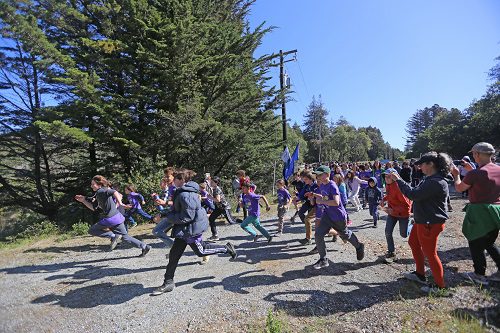Remember last week when I shared with you the key takeaway from my recent presentation at an education conference? My main point was that a diverse and decentralized education system, grounded in choice, leads to better outcomes and greater social harmony.
It turns out that more people are recognizing this regardless of their political leanings. While the recent expansion of school choice policies in many states is being largely driven by those on the political right, The Daily Beast, a popular publication positioned squarely on the political left, is also echoing the benefits of school choice policies and the education entrepreneurship they stimulate.
In an excellent opinion article earlier this week, columnist Bonnie Kristian exclaimed that “Ron DeSantis just made life easier for parents who hate his book bans.” Kristian explained that Florida’s newly passed universal education savings account program, now the largest such policy in the nation, will provide about $7,600 per student each year to use on various educational expenses, including tuition at a private school or microschool, homeschooling supplies, tutoring, educational therapies, curriculum, and so on.
For parents upset over the Florida governor’s recent legislation stating what can and cannot be said in public school classrooms and what books can and cannot be placed in public school libraries, school choice policies now enable them to leave a public school and find a school or learning setting that will include content that best reflects their values.
Kristian describes school choice as “an escape hatch, and progressives who live in red states might want to get more comfortable with that idea. The longer public schools remain a central culture war battleground, the more they’re going to want an option to escape.”
She goes on to say that “private schools can have whatever curricular and library content they want. Are you angry that your red state is excising any mention of gay people from the school library? In a private school, your library could exclude any book that doesn’t have a gay character.”
Indeed, school choice provides an exit option for either progressives or conservatives, or anyone else, to leave an assigned district school for a different option that is more aligned with a family’s personal preferences, whether that’s a particular educational philosophy like Montessori or Classical, or a particular political persuasion, or any other reason.
In my travels across the country meeting with education entrepreneurs, and in interviewing many more on my podcast, I have found that they launch their schools and programs for a wide variety of reasons and they represent breathtaking diversity in their educational philosophies and personal worldviews.
Some founders launched their schools or programs because they were concerned about “critical race theory” bans in certain areas and wanted the freedom to discuss ideas without government censorship. Similarly, some founders launched their schools or programs because they were concerned about “left-wing ideology” creeping into public schools and wanted children to hear a different message. Neither of these factors is typically the primary motivator for an entrepreneur, but they can contribute to the founder’s vision and messaging to potential families.
Founders create an assortment of educational options and families choose the one that suits them best. They may even choose different ones at different times, or for different children. The point is that they have the choice. No longer are families forced to send their children to an assigned district school that may not be what they want.
Critics sometimes say that all of these choices lead to an atomized society with no common fabric. I would say the common fabric is the freedom to choose. The common fabric is consent over coercion.
As I said last week, we don’t fight in the grocery store cereal aisle because we are all free to choose what we want. We fight in school board meetings because we’re not.
School choice policies create greater social harmony by reducing the government’s control over our lives and learning and providing greater access to a panoply of educational possibilities.
For school choice policies to fully succeed, both progressives and conservatives will need to make peace with the idea that not all families see the world the same way or want the same thing—and that’s okay.
Until next week,
Kerry
P.S. Maybe the third time is the charm? Apparently, the Journal of Pediatrics article link on declining free play and the rise of youth mental health problems still wasn’t working last week. Let’s try this again.
And speaking of youth mental health, Tuesday’s podcast episode featured two New York City therapists who are launching an Acton Academy, largely in response to what they see as a rising adolescent anxiety crisis. They see alternative education models in general, and learner-driven models like Acton in particular, as the antidote. Check out our conversation wherever you get your podcasts, or visit liberatedpodcast.com.
—
Senior Education Fellow
Foundation for Economic Education





